What interest rate rises will mean for you
We’re all expecting an interest rate rise in the coming weeks, but what does this mean for you and your family? We asked the experts.
Economy
Don't miss out on the headlines from Economy. Followed categories will be added to My News.
The Reserve Bank is expected to raise interest rates next week, but what does this mean for you and your family?
The big four banks have all predicted rate hikes are coming, with ANZ and NAB calling on the RBA to raise its target cash rate as high as 0.5 per cent as soon as next week.
This would mean a 0.4 per cent increase for Aussies trying to pay off their mortgages.
Stream more finance news live & on demand with Flash. 25+ news channels in 1 place. New to Flash? Try 1 month free. Offer ends 31 October, 2022 >
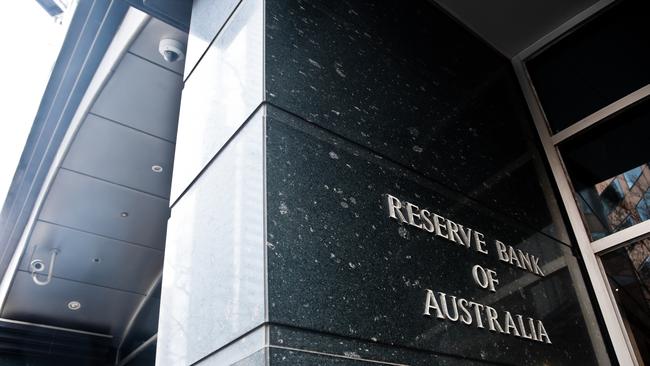
The predictions come after CPI data showed a record 5.1 per cent annual inflation rate which confirmed what most Aussies already suspected -- that the cost of living is rapidly climbing, creating a struggle for those relying on wages.
As the cost of living becomes a focal point in the upcoming federal election, Aussies are wondering how high inflation and interest rate rises will affect them.
News.com.au spoke with Bill Tsouvalas, founder and managing director of asset finance broker firm Savvy, and Canstar’s finance expert Steve Mickenbecker about what surprises Aussies are in for.
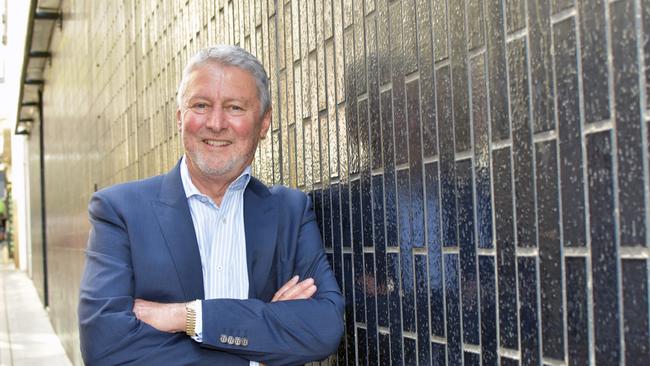
I’m paying off my home mortgage. How will rate rises affect me?
According to Mr Mickenbecker the pain of interest rate rises will certainly hit home buyers. When the RBA puts up its interest rates, the banks will follow and repayments will increase.
“This will be a shock for a lot of people because a lot of borrowers have never seen a rate increase,” he said.
Many Australians already find meeting mortgage repayments a serious source of stress.
A new representative survey of 1005 Australians conducted by Savvy found that 26 per cent of respondents identified meeting their mortgage repayments as a major concern. The survey found that young people aged between 25-44 were the most concerned demographic.
Mr Tsouvalas told news.com.au that spending more than 30 per cent of your household income on your mortgage repayments, generally leads to mortgage stress. With substantial rate rises on the way, he feels that more Australians will end up spending an increased amount of their income.

I rent my home. Will the rate rises affect me?
For people renting their homes, they will also feel the pinch – but not right away.
“It takes a while [for rate rises] to work through the rental market because you have people sign 12 month leases,” said Mr Mickenbecker.
“Come to the setting of rents, when rates go up the equation for landlords become such that there are high costs and higher loan repayments. So it will work its way through the rent market.”
This is bad news for Aussies already facing a brutal rental market.
Data released by SQM Research earlier this month found that capital city rents had risen by 11.8 per cent in the last 12 months with house rents rising 14.7 per cent over the same period. This is consistent with the findings of the Savvy survey.
“Thirty-two per cent of respondents said they’re spending 31-45 per cent of their income on rent,” Mr Tsouvalas told news.com.au.
“Another 25 per cent said they’re spending 46-60 per cent … that’s absolutely huge.”
Mr Tsouvalas said that the recommended amount any household should be spending on rent to avoid financial stress was between 25-30 per cent.
“With rental stress, you’ve got two problems. One, you’re worried about rents going up but you’re also worried about losing somewhere to live and not being able to find another place,” he said.
Renters worried about finding another place to live do have reason for concern, as the SQM Research also found that rental vacancy rates across the country had fallen to 1 per cent, contributing to rising prices.
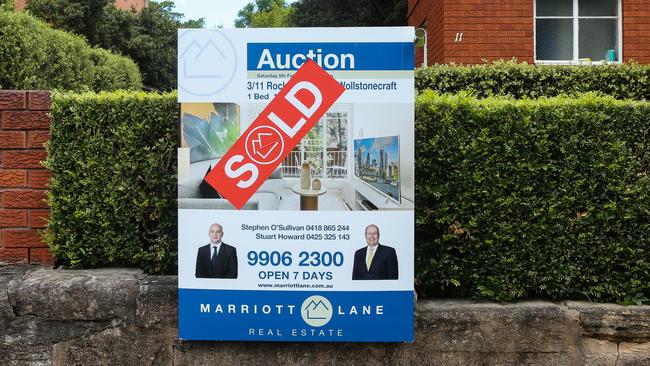
I’m looking to buy a home. Do the rate rises affect me and is now a good time to buy?
For people looking to get into the housing market, the rate rises may provide opportunities, but Mr Mickenbecker says the picture is complex.
While an increase in interest rates will bring up the cost of repayments, it may in turn cause a drop in demand, thereby seeing house prices fall marginally.
“The demand for new loans for houses will fall and prices will experience some downward movement,” he predicted.
There has already been a slight softening of house prices. The percentage of suburbs with house price declines in the March quarter was 46.8 per cent in Melbourne, 38.6 per cent in Sydney, 10.9 per cent in Hobart, 13.4 per cent in Perth and 18 per cent in Darwin, according to CoreLogic.
Prices in Adelaide and Brisbane remained strong.
I want to get a car loan. Will the rate rises affect me?
Absolutely.
“What’s going on here is wholesale interest rates across the world have gone up,” said Mr Tsouvalas.
“So even though your car loans and your personal loans are not directly linked to an increase in the RBA cash rate as much as home loans are, the wholesale cost of funds have gone up over the last six months.”
Savvy found that over the last four months every major lender has increased its consumer car loan rates. Mr Tsouvalas predicts that the interest rate rises for car loans will actually be higher than those of home loans as they tend to be fixed rates for around five years.
This is good news for Aussies already paying off a car loan with a fixed interest rate, as nothing will change.
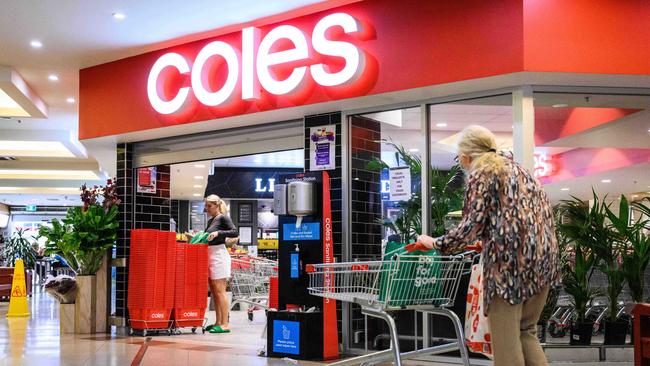
I have a fair bit of credit card debt. Will I be affected by the rate rises?
According to both Mt Tsouvalas and Mr Mickenbecker, the answer is ‘probably not’.
The reason they’re not expecting credit card interest rates to increase, is they never went down to begin with when the RBA cash rate was also low.
“I don’t think the banks are going to have a very strong argument for putting credit card interest rates up and I just don’t think they’ll do too much,” Mr Mickenbecker told news.com.au.
“There might be a little bit but not a lot.”
Regardless, Mr Tsouvalas feels that having a lot of credit card debt is not ideal as the interest rate is already so high.
“It is best to pay off credit card debt and consolidate your home loan … this is the easiest way to save,” he said.
I have lots of savings in the bank. Will I be affected?
Yes and no.
The reason for the RBA’s rate hike is to rein in inflation. Mr Tsouvalas believes as inflation is currently outpacing the rate of interest savings accrue, people with savings could be in fact losing money.
Mr Mickenbecker feels that people living off their savings or using them to supplement another source of income such as a pension could potentially be benefited eventually. That would only happen after a while and on the condition the banks pass on the full rate increase.
“The history, unfortunately, is that the banks will pass on an interest-rate increase for their existing home loan borrowers,” he said.
“But they don’t necessarily pass on the full interest rate increase to people they borrow from – the savers.”
I have shares and investments. Will I be affected?
After the release of the inflation figures this week, the ASX 200 dipped, with the big four banks, supermarkets and tech stocks doing particularly badly.
While this may ruffle a few feathers, Mr Mickenbecker thinks this isn’t a terrible thing for people with shares. It gives people an opportunity to invest today and then enjoy higher prices down the track should the market come alive.
Mr Tsouvalas agrees.
“You’ve got to think about it as a long-term game. Don’t panic,” he said.
“Leave it in there because in three or four years time, if you’ve bought into a great business, that stock price will recover and you’ll get your money back and potentially make some money eventually as well.”
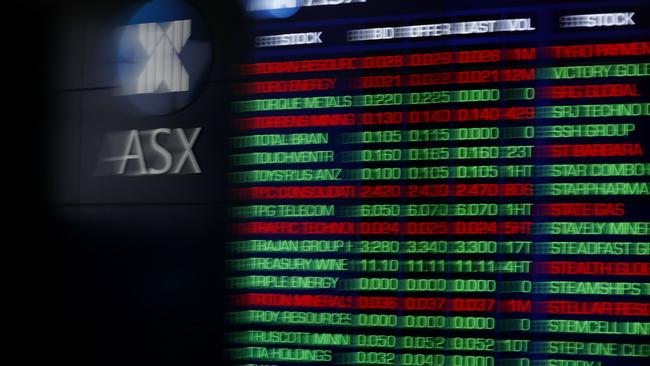
For many Australians worrying about their grocery bills, things are going to get worse before they get better, but when it comes to the cost of living, the RBA hopes raising interest rates will help. Eventually.
“Inflation is the biggest pressure on cost of living at the moment, so the RBA and banks have to raise rates. There’s no way around it,” Mr Tsouvalas said.
“Higher interest rates will help counter this eventually. Just don’t count on it happening this year.”
Originally published as What interest rate rises will mean for you




